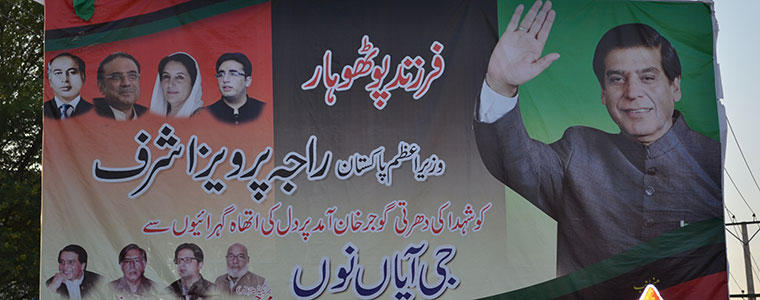In Pakistan, a Frenetic Pace of Controversy and Upheaval

Pakistan watchers in Washington have been finding it increasingly difficult to keep pace with developments in Islamabad. First there were the events of 2011 – a year of crisis for the Pak-US relationship. Then there was more bad blood after Pakistan refused to reopen NATO supplies to Afghanistan and dug in on the issue of a formal apology from the U.S. for the 24 Pakistani soldiers killed in a NATO airstrike last November. And now there is extreme political frenzy within Pakistan – extreme even by Islamabad standards – in which the Pakistani Supreme Court dismissed Prime Minister Yousaf Raza Gilani and then the government named a highly controversial politician as the new prime minister. Meanwhile, the Supreme Court Chief Justice's son has been embroiled in a high profile corruption scandal.
Predicting the political future even at the best of times requires no less than a crystal ball in Pakistan's case. But a few things are fairly clear.
First, the executive-judiciary tussle that has manifested itself time and again ever since Chief Justice Iftikhar Chaudhry was reinstated over three years ago is here to stay. The gloves have come off as the Court has finally pulled the trigger on the PM for not complying with its long standing demand to write a letter to the Swiss authorities reopening corruption cases against President Asif Zardari. The incoming PM is certain to be put under the scanner immediately. Many believe that he may meet the same fate as his predecessor.
Second, President Zardari's choice to appoint Raja Parvez Ashraf as PM suggests that he is not as concerned about the credibility of the prime minister's office as many hoped. Ashraf was fairly discredited for his controversial role as Minister of Water and Power in Prime Minister Gilani's cabinet; he was eventually removed from the post. The opposition is already crying foul and shall continue to do so as Pakistan moves towards a general election in a few months. Politics thus is certain to become increasingly rowdy. Consequently, the space for the government to take tough stances on governance related issues – much needed as it is to get the Pakistani economy on track – will further shrink.
Third, Pakistani politics will have little time left to deal with the Pakistan-U.S. relationship. Already in the doldrums, Pakistani decision makers are likely to get so embroiled in the domestic scene that the U.S. relationship may only find the backburner. One can certainly not expect the environment to be conducive for too many bold decisions; in terms of the Pakistan-US relationship, these do not go hand in hand with the need to keep up popularity in an election year. Coupled with an increasingly domestic focus in the U.S. for the upcoming November elections and a growing sense of resentment towards Pakistan, expecting a major breakthrough in the bilateral equation may be too much to ask for.
All in all, a fairly gloomy year lies ahead as far as prospects for progress on any a number of these fronts.
Moeed Yusuf is South Asia Adviser at the U.S. Institute of Peace.



